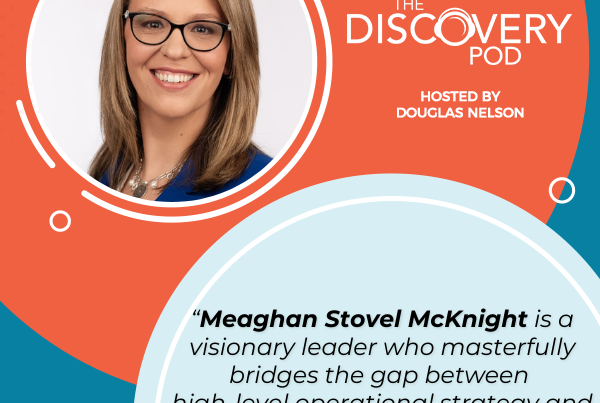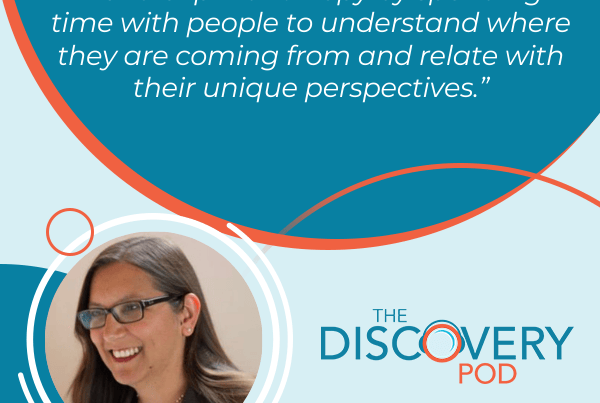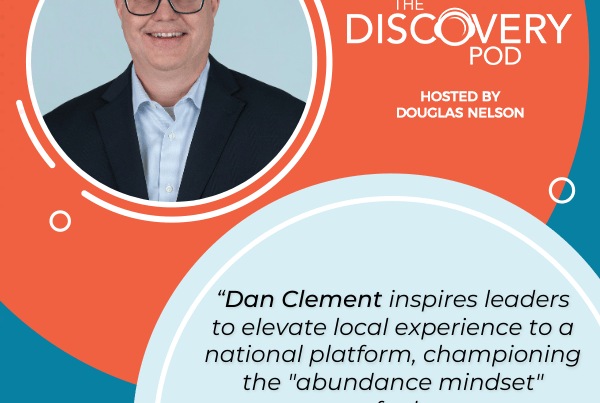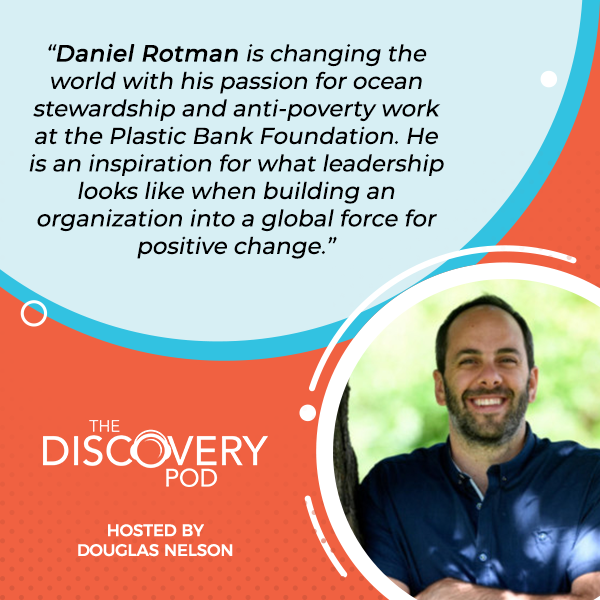
Plastic waste is undeniably one of the greatest problems we are facing today. Despite this, efforts at mitigating this problem are uneven across the globe, especially when you factor in poverty levels. This dual problem of addressing plastic pollution and poverty makes the task even more crucial. This is where the Plastic Bank Foundation comes in. With its dual mission, they aim to address poverty to create a cleaner ocean. Its Executive Director, Daniel Rotman, joins Douglas Nelson in this episode to shine a light on these issues and how he is leading the organization to realize its mission. From working with communities to engaging with granting partners, Daniel shows us what it takes to build an organization into a global force for positive change. Tune in and discover the journey of leading a global fight for a better world.
—
Listen to the podcast here
Plastic Bank Foundation with Daniel Rotman, CEO
In this episode, we have Daniel Rotman, Executive Director of the Plastic Bank Foundation. Daniel is an experienced and passionate advocate for social change, combining his passion for ocean stewardship and anti-poverty work at the Plastic Bank Foundation. In our conversation, we explore what it means to start as a new organization as an employee and build a global force for positive change, what that looks like, who needs to come along, and how to function at the pace of change required for the moment.
Slow at the beginning, quick with the execution. For leaders who are dealing with their own planning exercises and remodeling their own organizations, Daniel’s perspective and Daniel’s journey are going to be insightful and maybe give some good examples that you can apply in your own work. Thanks for reading.
—
Welcome to the show, Daniel.
Thanks for having me, Doug.
I am looking forward to our conversation. It’s rare that we get to have a show so close to the first-year anniversary of someone taking on their role. We are looking forward to reflections on what it was like when you first started, but most importantly, focusing on what’s to come for Plastic Bank. As we get started with the conversation, could you share with our audience what the role of the Plastic Bank Foundation is and the work that you do around the world?
The Plastic Bank Foundation is a nonprofit organization that works internationally to support communities to collect plastic for recycling. As you know, plastic entering the ocean is a massive problem for us. Many of the communities most affected live in poverty. The goal is to encourage people to collect plastic and sell it for recycling.
What is the connection between poverty and plastic?
There’s a connection, unfortunately, between poverty and waste, and poverty and pollution. You see that throughout the world. Recycling is a good example of that. If you look at the countries that produce and use the most plastic, it’s North America and Europe, but those countries also can afford to have municipal waste to pick up so that the plastic that they do use and the waste that they generate isn’t flowing directly in the ocean.
In countries that can’t afford to have a government or a private company come and pick up plastic or other recyclable materials, those materials are often left on the side of the road because they’re not valuable enough to be sold for recycling. You’ll see that a big dynamic is that the countries that use less plastic, that reuse and recycle the most often have the most plastic entering the ocean due to the fact that they don’t have the government infrastructure or the civil society infrastructure to collect the plastic and other recyclable materials.
That’s where you come in.
Exactly. Unfortunately, plastic, which is an incredibly valuable resource, something that is going to help humans survive for the foreseeable future is not value. Even if you’re living in extreme poverty, collecting plastic is not a viable option as a form of income. Plastic waste is sold for recycling, that does exist, but you need huge volumes. It’s a complicated process and there’s a lot of technicalities involved. What the Plastic Bank Foundation does is try to find ways to encourage communities to collect plastic. We offer training and safety equipment to communities that are trying to collect plastic. We apply for grants to get equipment and to help process the plastic that is collected.
What the Plastic Bank Foundation does is try to find ways to encourage communities to collect plastic. Share on XWe also offer incentives for people who are collecting plastic in the form of health and food incentives mostly. We offer food vouchers or grocery store vouchers for people who are collecting plastic waste for recycling as well as accident or health insurance or life insurance for those engaged in this physical, often poor working conditions activity.
What you’re describing there is something that is hyperlocal in terms of the action taken in the community on a global scale. How do you balance that intense local focus with the global issue that is plastic waste?
That’s what attracted to me this job in the first place. The Plastic Bank Foundation operates a niche that’s very unique. In fact, we’re the only people in this space who are working on a very technical and specialized activity that looks different in many different parts of the world, but the bare bones are the same across the world. It’s often people living in poverty, waste collectors, coastal communities, or collecting plastic that would be entering the ocean. The support needed is often the same across wide swaths of the world. We can take the learnings from one country, one community, and one person, move that across, take what works, and move it into other countries as well.
That’s impressive. How do you measure success when you’re working at that hyper-local level?
What’s also nice is that this is a quantifiable endeavor in some ways. We can measure how much plastic is collected. We can measure how much revenue is generated by the sale of recycled plastic. We can measure how many people are participating. There are some nice quantifiable metrics there. Success is in the grand scheme of things, quite difficult to achieve. We have to look towards what programs have the most impact in improving people’s lives, encouraging people to collect plastic, and have an overall benefit for the entire community because not everyone can collect plastic based on physical or geographical constraints. How can we create the most value for the community using this resource that should be valuable but that is not valued in our society?
You mentioned you can measure success for one individual. Is there a story or two that comes to mind when you think about this work in this community or this work for this individual?
We unfortunately have seen the increasing value of health and accident insurance in the work. We constantly get stories. If you talk to people and say, “We would like to offer you a voucher,” and it’s the same here in Canada as well, people would gravitate towards the grocery voucher. We’ve seen health insurance come into play, unfortunately, quite a bit. It’s a very physical job to collect plastic, not only on the body bending down, working on dirty beaches, and carrying lots of weight. It also is you’re separating garbage, you’re separating trash. You often are working without safety equipment. As much as we try to encourage people to wear gloves and masks, it’s not always taken up.
There are a lot of accidents. We’ve heard firsthand how amazing it’s been to have this insurance that allows people who often have to take time away from their work that could be able to supplement the income loss from time away to be able to make this a lifelong or a career activity to generate revenue for their family and their household. That’s been an amazing story.
I was in Cairo. There are ten rivers in the world. That makes the largest ten rivers pollute a lot of the ocean with plastic because of the fact that people from the entire length of the river throw garbage into the river basin or the adjacent rivers flow into that river. The Nile being one of the biggest rivers in the world generates a lot of plastic into the ocean. I was in Cairo working with the garbage collecting community there. I met a lot of people who told me that they’ve been collecting garbage for their entire lives, and their parents have been collecting garbage.
It’s been a community event. It’s actually quite an amazing community, but this is the first time that they’ve often had a little bit of job security through accident insurance or health insurance where they feel like they can, if they do get hurt, have the means to take time and recuperate. It was heartwarming to see.
Plastic Bank Foundation is unique and you have a corporate partner, Plastic Bank. How do you separate those two entities in conversations with communities? Where is the line and how does that work?
The line is actually quite clear. The corporation works on the buying and selling of plastic waste. When it talks about training people how to do plastic waste or how to collect plastic waste initially was the corporation. Even the foundation now can take over some of the technical aspects. The corporation is about access to markets. The foundation is much more based on social programs. Whether it’s the food or the health programs that I was referring to or whether it’s education, micro-entrepreneurship abilities, and opportunities, the line is clear. We have a market commercial-based partner, which is the corporation, and a social partner, which is the foundation.
The community seemed to understand that. The most interaction happens on the foundation side, the social side. Once you have a supply chain and an ecosystem developed, the person who’s collecting plastic knows where to sell the plastic, knows how to receive the money in an eWallet or cash, and knows the process for that. The social program, the dynamic, is always changing because of a change in health or needing support, filing an accident insurance claim, or another program that we’ve developed through a granting partner or a private partner.
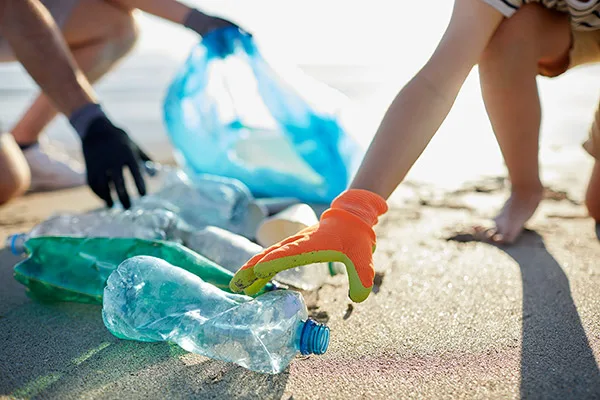
Plastic Bank Foundation: Once you have a supply chain and an ecosystem developed, the person who’s collecting plastic knows where to sell the plastic and how to receive the money in an eWallet or in cash.
Your granting partners seem to have a clear understanding of the difference between where the corporation stops and where the foundation begins.
In all transparency, that is a little challenging for some of the granting partners. You have a limited amount of space to explain the situation in a grant, as you know. Our granting partners are big partners. We get thousands upon thousands of applications. I do think that has been a point of having two entities with slightly different names, but the same patient name can be a source of confusion and it’s something that we’re working on clarifying with our partners.
I want to come back to the broad swath of the world that you’re working in. You mentioned that there are learnings that are transferable by community and by country, but there are significant differences in the political landscape and the cultural landscape when you’re setting up programs in various countries. From your perspective, how do you make sure that what the Plastic Bank Foundation is doing is similar in each country and each community that you’re operating in? What are the common themes that you hold strongest to?
It’s important that we stick to our core mission and that we stick to our five program areas, which are health, food, education, community building, and advocacy. It’s important that we don’t stray from those areas. I do think it’s important that we are flexible within those areas. A food solution may look completely different in Egypt than it does in Indonesia. It can even look different in Bali than it does in Jakarta and Indonesia because of the regional differences. Urban versus rural across the world have massive differences in disparities. I do think that trying to create equivalencies is a tough job, and it’s important that we are easy on ourselves and we look at the impact. When we start trying to look down at the beginning of the process, it’s much more difficult to compare them at the end.
If it’s the impact that we’re seeking to achieve being seen on the ground in both the rural community in Indonesia and the urban community in Egypt, then yes, that’s what we’re looking for. It’s important that we do a lot of feedback, evaluation, and monitoring to make sure that we are providing benefits that are wanted, that are used, and that are helpful to the communities we serve. It’s a learning process, but if we focus on impact and the impact that we’re trying to achieve and we focus on the satisfaction and the pertinence of the programs that we are providing to the communities, we’ll find our way.
I like the idea that the process may be different. The journey may be different, but there’s a commonality of outcomes that you’re seeking that is important. That’s relevant across the social profit sector for anyone working in the community.
It’s always important to focus on what you want to achieve and understand it and understand what you can achieve. When you take a problem as big as plastic, which is as big a problem as we have in the world, unless you have the understanding of what your role in this massive system is, what you are hoping to achieve, and how that contributes to a solution for this problem, your metrics and your evaluations are going to show failure across the board. You have to know what your role is, what you can achieve, and how to measure that.
It's always important to focus on what you want to achieve and understand what you can achieve. Share on XThe other component is we’re not trying to say from here in Canada that we have the answers. We’re working exclusively with local partners in each one of these countries who are experienced in the field, who have an understanding of the communities, and who know the communities. We’re working with them to develop programs around plastic, which never existed before, because like I said, this is a niche, but there are development programs, recycling programs, income generating, and micro-entrepreneurship training programs that exist outside of plastic that can be adapted using our expertise.
One of the things you mentioned in your areas of focus was advocacy. I’m curious how advocacy shows up in the day-to-day work of the Plastic Bank Foundation.
When I first started, it was something I said, “We’re going to get to it.” Now is the time to get to, but I think that we have been getting to it on the local level. When we’re working in countries like the Philippines, while we are working with individuals and we are working with individual communities or communities where those individuals live, we often are working with local governments because of the fact that their local governments can provide paths for us to be able to clear regulations and to be able to understand supply chains. Also, because local governments have a vested interest in improving their communities.
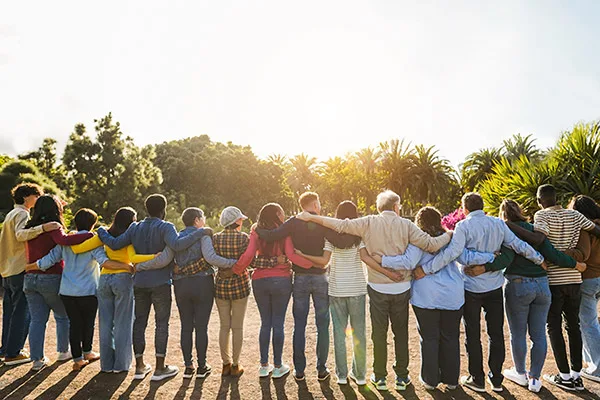
Plastic Bank Foundation: Local governments have a vested interest in improving their communities.
The more we can continue to work on a micro advocacy level with local governments to be able to advocate for the policies, the regulations, the connections, and the funding needed to be able to transform a community, that’s advocacy on a micro level. We also have to understand that we are as well a Canadian organization. We’re a foundation that’s based out of Canada. There’s work to be done both at home and on the international stage because we do have leverage as being from a country like Canada that is respected.
On a Canadian level, we’re going to start launching some advocacy campaigns using our knowledge and our on-the-ground experience, which many of our environmental partners don’t have as much, which we’re going to try to bring them into a network and talk about some of the things that we see on the ground that aren’t thought of in the environmental movement, from financial empowerment to the technicalities and difficulties of recycling colored plastic bottles, for instance.
On the international level, we’re part of the United Nations’ environmental programs work on developing a global plastics treaty, we’re a recognized member of that, and we’re participating in those negotiations. Once again, while we do have an environmental goal and a mission at the end, we are trying to bring in that social and financial empowerment vision that we see the potential coming out of the circular economy.
You keep coming back to that concept of being anchored in the community and speaking on a global stage. There are so many organizations that set themselves up to try to do that. Often, when they’re coming from the West, they don’t have the on-the-ground expertise or the experience and expertise. In your own professional career, you’ve worked in development organizations. How has that informed the work that you’ve done as Executive Director of Plastic Bank Foundation?
It’s been interesting. I’ve worked both internationally and in a local community setting here in Canada. Those two together have informed how I feel the posture and the position of organizations should take. I do think that there is something to avoid. It’s the paternalistic nature of international development. We’re well anchored in local communities, local staff, and local partners to be able to understand the advantages we can bring as an international body that potentially has access to more funding or access to different partners to be able to meet the goal needs of local communities. It’s important that the mechanisms for feedback, the mechanisms for evaluation, and the avenues for people, communities, or individuals most affected by the issues that we’re working on, be able to self-direct and to be able to organize around those issues.
It’s important that we foster that climate and we develop those mechanisms so that when I do come on a podcast like this, or when I do have a discussion with a donor that what I’m saying reflects the voices on the ground and reflects the reality of what we’re seeing and not just the perception from the comfort of my house in Montreal. It’s important that having worked with the United Nations, having worked in a grassroots community organization in Montreal, and having worked with social businesses in Canada and abroad, we don’t speak from a perception of what we think should happen, but it’s grounded in feedback and evaluation.
One of the things that’s satisfying to me in getting to do this work and working with organizations here at the Discovery Group is seeing the evolution of how they view themselves in the world and the work they’re able to do. We reflect on our conversations nearly a year ago around all of the potential of the Plastic Bank Foundation. As you’re describing it now, it sounds like an organization growing to its full potential very quickly. If you look back at those first few days, what stands out for you as being important to get the organization moving in the right direction?
It’s funny that you say we’re moving very quickly. If you take a step back, it’s been a year now since I was hired. We just finished our first six months of operation. It is moving very quickly with 7 staff and over 14,000 people. We’ve reached programs across 3 to 4 countries. Patience is a big important lesson here because I do see this potential. Like I said, we occupy this interesting niche where we have access to markets through our corporate partner, we have very specific expertise, and we have local partners and decades of experience we can draw from working on this important problem of the moment.
I do think that having the patience to be able to map out a path to achieving this vision is important. Take the time to understand the landscape. I was the first hire, so I had to figure out, not only where all the files were from the foundation but also who the players were and how we could fit in. I knew we had this niche knowledge, but how does it fit into the greater ecosystem, and then figuring out who the partners are needed to be able to activate that niche and define our place in this ecosystem? Having the patience to understand the layout, having the patience to develop a plan, and then having the patience to execute that plan as the opportunities come along is important. A lot of times, you get too caught up in where you want to be without taking the time to develop a solid fundamental plan.
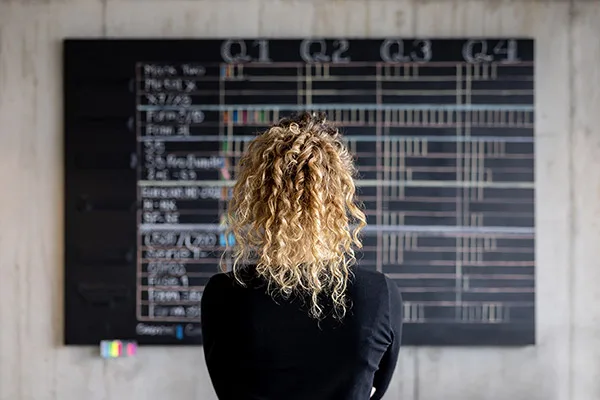
Plastic Bank Foundation: Having the patience to understand the layout, develop a plan, and then execute that plan as the opportunities come along is important.
It’s interesting. Through the Discovery Pod and our work at Discovery Group, we have the chance to work with a lot of leaders either new to the organization, a new strategic plan, or a new fundraising campaign. There’s an interesting distinction. Some leaders, if they look back from before or the beginning of the process and say, “I should have gone faster. I should have pushed,” about an equal number say, “I should have gone slower,” if they could give advice to themselves looking back and go even slower still. Where do you stand on that spectrum of pace?
I always think we should go faster. Not that I said that we should have patience, but there’s only so fast you can go. You’re in a small team, so there are unlimited potential opportunities around that exist. There’s only a certain number of concrete avenues you can pursue at one given moment. A lot of it is timing, luck, and capacity. I do think going faster is not necessarily a bad thing once you’ve developed your fundamental positioning, your fundamental business plan, and what you want to achieve. Ambition is contagious. The growth and the rush that people get from being on something new, that’s innovative, and that’s exciting is contagious so it’s easier to raise money, raise friends, and have a bigger impact.
When I said that we need more patience, it’s probably having the patience to understand that you’re moving as fast as you can, even though you always want to be faster. It’s funny, my previous answer sounded like I was more on this side. We should go slow, but it was more about, “No. Let’s slow down and understand that you’re going as fast as you can, even though you think you should always move faster.”
That’s the old Yogi Berra quote of, “If you don’t know where you’re going, you’ll probably never get there.” Figure out where you’re going and then move quickly towards it. You talked about some of that refining the core purpose of the organization, what your core activities are going to be, and the first employee hired by the board. Describe the process of bringing the board along or how the board was involved in setting those directions because that can be a challenging and essential part of getting ready to move quickly with implementation.
I was very lucky to have this job. One of the reasons I took the job is that the board is very entrepreneurial and comprised of actual entrepreneurs who understand the need to move quickly and who understand the need to be adaptable and flexible. A business-minded approach can work for startups of any kind, including nonprofits. That was lucky in this case and bringing this board along was about aligning people around objectives and outcomes that we talked about previously and, for me, as an executive director to develop the path forward in the business plan to achieve those objectives. Also, I present a timeline, which we’ve accelerated considerably through luck, hard work, and taking advantage of opportunities that have come our way.
The bottom line is we worked hard to align on objectives. What are we trying to achieve here? What can we achieve? We work on realistic timelines, so as an executive director, I could probably exceed expectations but also be prepared that it might move slower for this entrepreneurial board than they’re used to, which it hasn’t, but Doug and I talked about that as well to make sure that we not only align vision but expectations as well.
From then on, what you want to do is you want to show this path and how it’s achievable because these big outcomes that we have for these startup organizations, whether it’s private, social enterprise, or nonprofit, could seem pretty far away and you need to have concrete steps for getting there. Whether or not those are the concrete steps you actually take, or whether you skip some steps, or you go off in a different direction a little bit, you do have to show that it’s achievable and you have to always show that it’s in service of this aligned mission that you have worked so hard to develop as a team.
There’s such a deep irony in our sector and probably in the larger private sector as well that the organizations that are most credible in saying they’re going to change the world often are the smallest new startups with the most limited capacity to do that at their inception. How did you work with the board in terms of co-creating what that was going to look like?
You have to ask yourself some hard questions when you’re tackling big problems. We talked about it and we touched on it briefly. What can we achieve? Let’s be realistic about what can we achieve and what are the metrics for it. People want to change the world, let’s say. What can we change and what would it look like if we were to be successful? Whether you’re working with clients or whether you’re working with participants in a program or working with people in your backyard, people in your neighbors, or your house, or you yourself, you always want to put yourselves in the shoes of what would success look like for all of your stakeholders.
You have to ask yourself some hard questions when you're tackling big problems. Share on XIt’s important that we align around what success looks like. For us, tackling this environmental issue that is complex and that has a lot of barriers, that are systematic, and that are going up against some of the biggest companies in the world who have no incentive to change, what can we do as a small organization at the time? Just one employee with limited resources, how can we position ourselves to have a positive impact and what would that impact look like?
Part of it is looking through the lens of if we wanted to say we were having a positive impact on someone’s lives, who was collecting plastic, what would that look like? Also, using needs assessments, understanding, working with local partners, working with people on the ground, working with the participants themselves, and feedback mechanisms to understand what that support would look like, what would impact their lives positively, and then using that to align our focus going forward.
As we come to the end of our conversation, I am particularly excited to ask you this question that we ask many of our guests at the end. Daniel, what are you looking forward to?
Like I said, patience is a virtue in my role as a startup foundation. I’m looking forward to achieving our potential and becoming a major player in this important issue where we bring the opportunities of this burgeoning circular economy and the financial opportunities to the communities that are most affected by this problem like the coastal communities that have plastic pollution, the communities where people are living in poverty and are working to collect plastic and improve their lives through financial empowerment, but also improve their community and the world’s lives that we take some of this exciting potential of the circular economy.
This potential for recycled plastic is going to become a more valued and important necessity in our lives so that we can create sustainable supply chains that are ethical, inclusive, and social. I’m looking forward to the Plastic Bank Foundation leading that fight, taking that head on, and talking about the importance of financial inclusivity, the importance of understanding local dynamics, and bringing our expertise to the forefront. We can hit that. We can become a major player pretty soon, and it’s exciting.
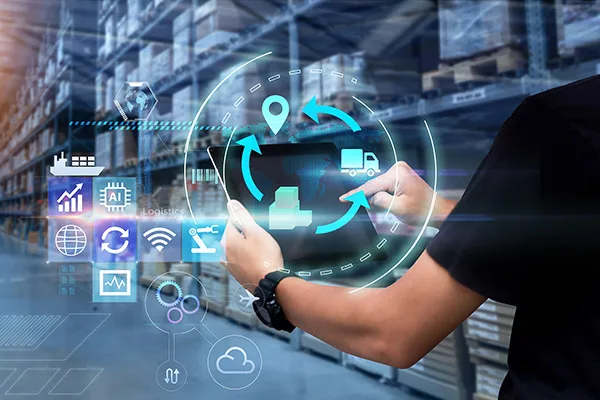
Plastic Bank Foundation: Necessity is in our lives that we can create sustainable supply chains that are ethical, inclusive, and social.
It’s great work you and your colleagues are doing. I love that the label we can get of it is, “Be patient, move quickly, and change the world.” Thank you so much for being on the show.
Thanks so much for having me.

